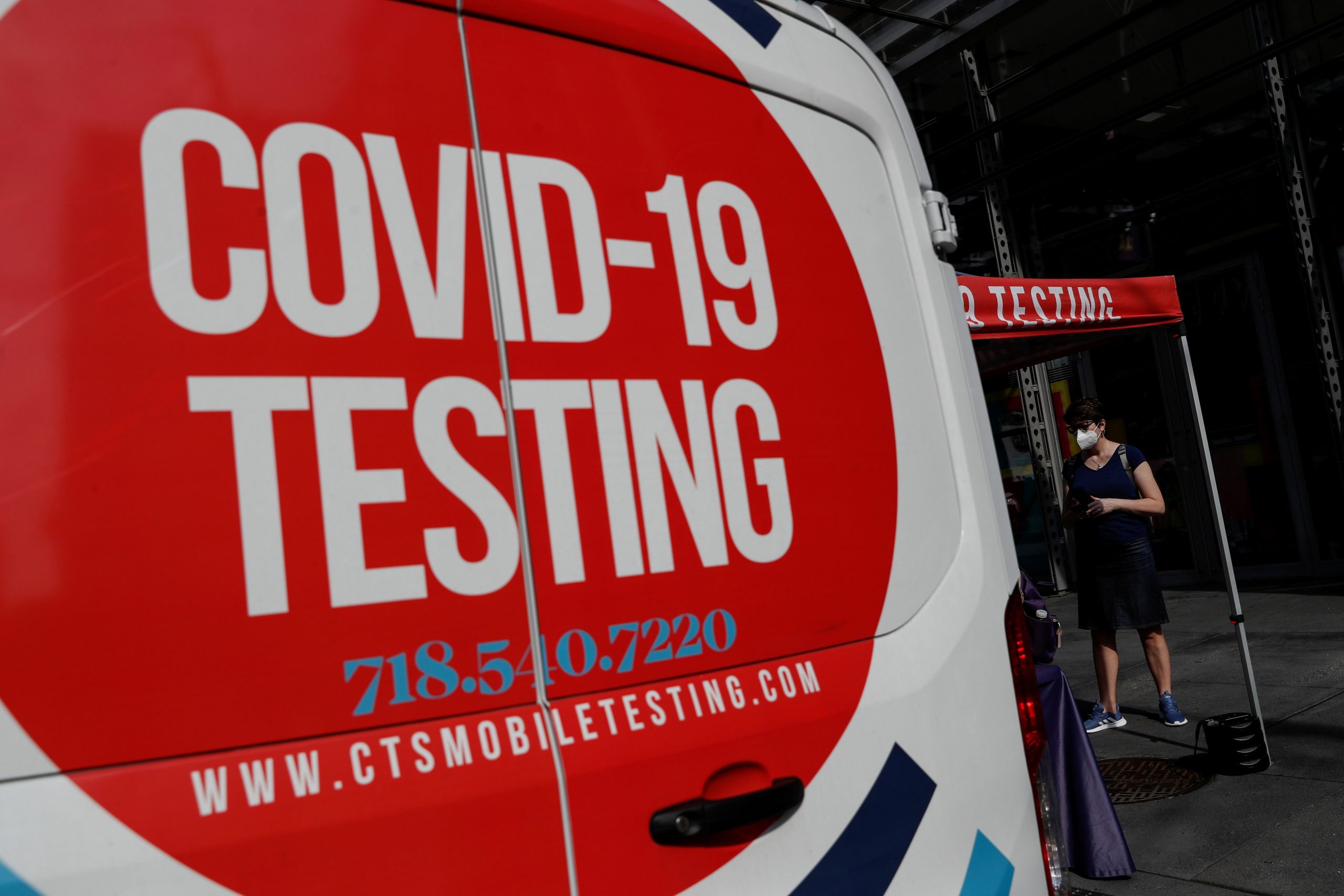Surging demand for COVID-19 tests from U.S. employers has exacerbated a nationwide shortage of rapid tests in recent weeks and is driving up costs for state and local testing programs, according to industry executives and state officials.
Testmakers including Abbott Laboratories, Quidel Corp and LumiraDX Ltd are scaling up production to meet rising demand. But significantly boosting test output will take weeks to months, half a dozen industry executives told Reuters, making the tests harder to procure in the near term.
“Employer demand has gone crazy,” said Quidel Chief Executive Doug Bryant. “We won’t be able to meet all the requests that we’re having.”
Nearly a dozen state governments said they are grappling with shortages of rapid tests, which provide on-the-spot results within minutes and are crucial for COVID-19 surveillance programs.
In Missouri, limited supplies of Abbott’s Binax Now rapid test, which typically sell to states for around $5 each, have forced it to consider other, more expensive options, a spokesperson for the states’ public health agency said.
“We are exploring other rapid antigen tests and finding most are at least three times higher than Abbott’s rapid antigen test,” the spokesperson said, adding that Missouri has not yet had to purchase the pricier tests.
Oklahoma has begun to pay higher prices for tests in recent weeks, said Michael DeRemer, the state’s director of emergency preparedness and response services.
State governments have been struggling to acquire https://www.reuters.com/world/us/us-covid-19-tests-again-short-supply-infections-soar-schools-reopen-2021-08-27 enough rapid tests for several months after a surge in COVID-19 cases fueled by the more contagious Delta variant.
And U.S. employers in recent weeks have been rushing to stockpile tests after the White House in September said it plans to mandate weekly testing for unvaccinated staff at businesses with more than 100 employees.
Emerald Packaging Inc, a plastic bag factory in San Francisco with 250 workers, sees the cost of complying with the government’s testing mandate as a burden and is urging employees to get vaccinated.
Emerald may require vaccination once the federal rule goes into effect, said CEO Kevin Kelly. He said Emerald has spent about $50,000 testing its employees so far and is concerned weekly tests will further drive up costs.
Quidel has had to decline more than half of requests from employers seeking to stock up ahead of the mandate, expected to take effect in October, said CEO Bryant.
It has also had to postpone exports of rapid tests to some foreign governments until next year, Bryant said. Quidel is delivering on existing contracts with countries including Canada.
BIDDING WARS, SIGNIFICANT MARKUPS
U.S. testmakers manufacture more than 50 million rapid COVID-19 tests each month, not enough for regular surveillance testing at schools and workplaces across the country, said Evercore ISI analyst Vijay Kumar.
Rapid antigen tests can cost as little as $2 each to make, according to Mologic, one of the largest British testmakers. But in the United States, bidding wars between health systems, state governments, and employers have contributed to much higher prices.
South Carolina, for example, is paying as much as $130 each for some of its rapid tests, a state spokesperson said.
That contrasts sharply with the UK and European countries. In Germany, large government purchases allow it to offer rapid tests to residents for less than $1 each, and it is not experiencing severe shortages.
Abbott and Quidel said they do not plan to raise test prices for customers. However, retailers and test providers often purchase tests and resell them at significant markups.
Walgreens Boots Alliance Inc and CVS Health Corp sell Abbott’s Binax Now rapid tests – which Abbott lists for around $5 – for $12 per test at pharmacies. Walmart Inc, Kroger and Amazon.com Inc charge nearly $8 per test even after they slashed prices temporarily to cost.
States largely have been using the $10 billion the White House set aside primarily for school testing programs. Some states including Missouri said their federal aid is running out.
Meanwhile, employers and consumers must pay for rapid test purchases themselves.
In an effort to ramp up production, Abbott reopened a plant in Illinois it had shuttered earlier this year, putting it back on track to produce upwards of 50 million Binax Now tests per month by the end of October, a person familiar with the matter told Reuters.
Quidel is building a new plant that will boost its rapid test output from around 20 million per month to as much as 70 million, but it will not be operational until year-end, Bryant said. LumiraDX is planning to nearly double its test production by year end.
On Monday, U.S. regulators authorized a rapid test made by ACON Laboratories, which plans to produce as many as 100 million per month by the end of the year.
“There’s definitely a supply chain squeeze on the rapid antigen side,” said Matthew McKnight, an executive at Ginkgo BioWorks, which manages surveillance testing programs for employers. “It will take a couple months (before) production catches up.”
(Reporting by Carl O’Donnell in New York, Additional reporting by Tim Aeppel in New York; Editing by Caroline Humer and Bill Berkrot)
